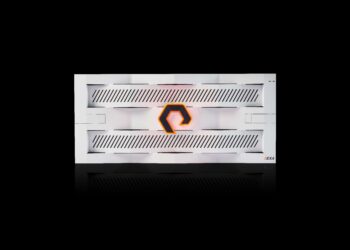 Worldwide PC shipments totaled 59.7 million units in the second quarter of 2023, a 16.6% decrease from the second quarter of 2022, according to preliminary results by Gartner. After seven consecutive quarters of year-over-year decline, the PC market is showing initial signs of stabilisation, including sequential growth from the previous quarter.
Worldwide PC shipments totaled 59.7 million units in the second quarter of 2023, a 16.6% decrease from the second quarter of 2022, according to preliminary results by Gartner. After seven consecutive quarters of year-over-year decline, the PC market is showing initial signs of stabilisation, including sequential growth from the previous quarter.
“The rate of decline in the PC market has slowed, indicating that shipment volumes may have reached their lowest point,” said Mikako Kitagawa, Director Analyst at Gartner. “There has been progress in reducing PC inventory after more than a year of issues, supported by a gradual increase in business PC demand. Gartner expects that PC inventory will normalise by the end of 2023, and PC demand will return to growth starting in 2024.”
The top vendors in the worldwide PC market remained unchanged in the second quarter of 2023, with Lenovo maintaining the No. 1 spot in shipments with 24% market share (see Table 1).
Table 1. Preliminary Worldwide PC Vendor Unit Shipment Estimates for 2Q23 (Thousands of Units)
| Company | 2Q23 Shipments | 2Q23 Market Share (%) | 2Q22 Shipments | 2Q22 Market Share (%) | 2Q23-2Q22 Growth (%) |
| Lenovo | 14,318 | 24.0 | 18,072 | 25.3 | -20.8 |
| HP Inc. | 13,451 | 22.5 | 13,566 | 19.0 | -0.9 |
| Dell | 10,394 | 17.4 | 13,298 | 18.6 | -21.8 |
| Apple | 5,293 | 8.9 | 5,308 | 7.4 | -0.3 |
| Acer | 4,021 | 6.7 | 5,094 | 7.1 | -21.1 |
| ASUS | 3,880 | 6.5 | 4,691 | 6.6 | -17.3 |
| Others | 8,295 | 13.9 | 11,488 | 16.1 | -27.8 |
| Total | 59,652 | 100.0 | 71,518 | 100.0 | -16.6 |
Notes: Data includes desktop and laptop PCs that are equipped with Windows, macOS or Chrome OS. All data is estimated based on a preliminary study. Final estimates will be subject to change. The statistics are based on shipments selling into channels. Numbers may not add up to totals shown due to rounding.
Source: Gartner (July 2023)
Lenovo’s year-over-year shipments declined again this quarter but grew sequentially. EMEA and Asia Pacific were challenging regions for Lenovo, but the company had only moderate declines in Latin America and North America.
HP shipments fell only slightly in the second quarter, ending a string of consecutive double-digit declines. Laptop shipments grew modestly but were offset by a decline in desktop shipments. The U.S. laptop market was robust for HP, with double-digit year-over-year growth.
Dell exhibited its fifth consecutive quarter of decline, with shipments down across most key regions. Asia Pacific was the most challenging market for Dell, where shipments decreased faster than the regional average. Dell did relatively well in the U.S. desktop market, maintaining the top vendor position.
“PC component prices and availability have improved drastically, helping stabilise vendor profitability despite the pricing pressure to clear inventory,” said Kitagawa. “However, as the PC market begins to recover and component demand increases, the favorable price conditions for memory and SSD storage that PC vendors have enjoyed are coming to an end.”
Regional Overview
The U.S. PC market declined 8.6% in the second quarter of 2023 (see Table 2).
Table 2. Preliminary U.S. PC Vendor Unit Shipment Estimates for 2Q23 (Thousands of Units)
| Company | 2Q23 Shipments | 2Q23 Market Share (%) | 2Q22 Shipments | 2Q22 Market Share (%) | 2Q23-2Q22 Growth (%) |
| Dell | 4,847 | 26.7 | 5,562 | 28.0 | -12.9 |
| HP Inc. | 4,842 | 26.7 | 4,563 | 23.0 | 6.1 |
| Lenovo | 3,040 | 16.8 | 3,349 | 16.9 | -9.2 |
| Apple | 2,421 | 13.3 | 2,495 | 12.6 | -2.9 |
| Acer | 1,068 | 5.9 | 1,340 | 6.7 | -20.3 |
| ASUS | 523 | 2.9 | 826 | 4.2 | -36.7 |
| Others | 1,404 | 7.7 | 1,715 | 8.6 | -18.1 |
| Total | 18,146 | 100.0 | 19,850 | 100.0 | -8.6 |
Notes: Data includes desktop and laptop PCs that are equipped with Windows, macOS or Chrome OS. All data is estimated based on a preliminary study. Final estimates will be subject to change. The statistics are based on shipments selling into channels. Numbers may not add up to totals shown due to rounding.
Source: Gartner (July 2023)
The U.S. economy was relatively stable, easing concerns among small and midsize business buyers (SMBs) and gradually generating PC demand. There was also a refresh in demand for Chromebooks from educational institutions, as well as laptops among government buyers. However, consumer PC demand remained weak in the U.S.
The EMEA PC market declined 14.6% year-over-year, marking its sixth consecutive quarter of decline. Continued political unrest, inflationary pressures and interest rate increases continued to impact demand for PCs.
“The disruptive business outlook is limiting business PC spending in EMEA, as companies reduce PC budgets as a cost management strategy,” said Kitagawa. “Business confidence must increase to influence stronger PC buying patterns. Meanwhile, consumer demand remains low, as all income brackets are affected by inflationary pressures.”
The Asia Pacific PC market also continued to fall, declining 26.9% year-over-year. A particularly weak PC market in China due to economic uncertainty and low consumer demand contributed significantly to the region’s results.
These results are preliminary. Final statistics will be available soon to clients of Gartner’s PC Quarterly Statistics Worldwide by Region programme. This programme offers a comprehensive and timely picture of the worldwide PC market, allowing product planning, distribution, marketing and sales organisations to keep abreast of key issues and their future implications around the globe.










Discussion about this post